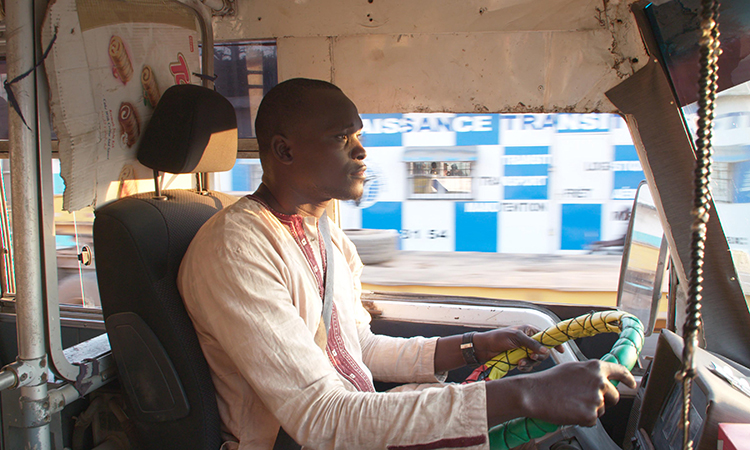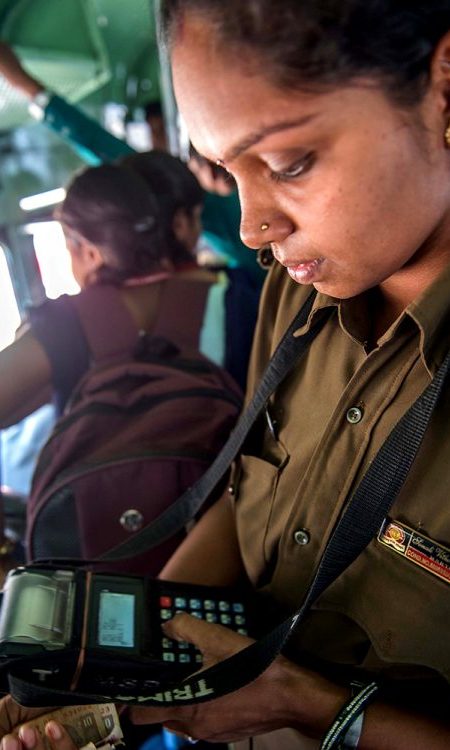Decent work must drive sustainable urban passenger transport services post-COVID-19
- Like
- Digg
- Del
- Tumblr
- VKontakte
- Buffer
- Love This
- Odnoklassniki
- Meneame
- Blogger
- Amazon
- Yahoo Mail
- Gmail
- AOL
- Newsvine
- HackerNews
- Evernote
- MySpace
- Mail.ru
- Viadeo
- Line
- Comments
- Yummly
- SMS
- Viber
- Telegram
- Subscribe
- Skype
- Facebook Messenger
- Kakao
- LiveJournal
- Yammer
- Edgar
- Fintel
- Mix
- Instapaper
- Copy Link
Posted: 27 July 2022 | Stephen Cotton - ITF | No comments yet
Stephen Cotton, General Secretary of the International Transport Workers’ Federation (ITF), details the importance of guaranteeing health protections and decent employment for urban passenger transport workers, and outlines how and why ITF is seeking a ‘just transition’ for the industry’s workers in order to deliver improvements to working conditions, the environment and the world’s communities.


Credit: International Transport Workers' Federation


Credit: International Transport Workers’ Federation
Urban passenger transport is one of the most significant urban employers, and is the largest in some cities. Globally, 7.3 million workers are employed in urban passenger transport services and several million more in the informal economy. The role that these services play in getting people to work and vitalising local economies means that its indirect impact on employment is much greater.
The role of urban passenger transport workers during COVID-19
While the skills, knowledge and experience that these workers possess are highly valuable, it is only with COVID-19 that the role of the workforce has been given widespread visibility and recognition”
Urban passenger transport workers have kept urban transport systems moving as a vital public service. While the skills, knowledge and experience that these workers possess are highly valuable, it is only with COVID-19 that the role of the workforce has been given widespread visibility and recognition.
As frontline workers, urban passenger transport workers have faced significant health risks and impacts. A report produced by the University College London (UCL) Institute of Health Equity (commissioned by Transport for London (TfL)) on London bus driver mortality from COVID-19 found that existing occupational health and safety problems were exacerbated by COVID-19:
- “Fatigue is a pre-existing issue for some bus drivers, with some evidence that COVID-19 infection and lockdown has contributed to this. Action, already being taken following previous research into factors contributing to tiredness, should be enhanced to address any new issues arising from the pandemic, following a short-term review of shift lengths, patterns and rotas”
- “Breathing problems appear to be a pre-existing issue reported by many London bus drivers, exacerbated in those self-reporting COVID-19 symptoms. In the longer term, air quality on London roads, to which bus drivers have particularly high levels of exposure, needs to be a priority for the government and Mayor”.
Governments and employers have a responsibility to protect the health, incomes and jobs of urban passenger transport workers, both in response to the ongoing pandemic and as part of the recovery”
Governments and employers have a responsibility to protect the health, incomes and jobs of urban passenger transport workers, both in response to the ongoing pandemic and as part of the recovery. Given their vital role and public function, guaranteeing health protections and decent employment for urban passenger transport workers is important not only for the workers themselves, but for the health and livelihoods of the general population.
Steps towards sustainable funding
Governments, workers’ organisations, employers and civil society will need to find viable solutions to deal with budget shortfalls and debt incurred by urban passenger transport systems as a result of COVID-19 and transition away from overreliance on farebox revenues towards more sustainable funding models.
This is an opportunity to ensure that public transport is organised to meet social, environmental and economic priorities, including the provision of decent work for urban passenger transport workers”
This is an opportunity to ensure that public transport is organised to meet social, environmental and economic priorities, including the provision of decent work for urban passenger transport workers. The commitment of public funds by governments for urban passenger transport operations, maintenance and infrastructure must be conditional on the fulfilment of public interest goals, including the provision of services to low-income and other vulnerable groups, gender impact assessments, increased democratic governance and the maintenance and expansion of decent work, including transitioning from informal to formal employment.
The decarbonisation of transport is inseparable from the decarbonisation of electrical power generation. Electrification of public fleets using renewable energy could make an important contribution to emissions reductions, and provide the opportunity to improve working conditions, guarantee retraining opportunities and formalise informal transport services and jobs. The International Labour Organization (ILO) published a report “Jobs in green and healthy transport: Making the green shift” in 2020, presenting possible scenarios for investing in public transport and electrification that could create millions of new jobs.
Decent work, quality services and a just transition


Credit: International Transport Workers’ Federation
Governments and employers should see workers and passengers/communities as crucial actors in the effort to improve urban passenger transport services and address the climate crisis. Workers can engage in the transition to sustainable mobility at a grassroots and day-to-day practical level.
Creating the space for workers, together with community-based organisations, to shape decisions over protecting, improving and expanding urban passenger transport systems and their conditions of employment is essential for building the kind of broad social support necessary to achieve investment on the scale needed.
Trade unions succeeded in getting the phrase “Just Transition” into the preamble to the Paris Climate Agreement. The text affirmed “the imperatives of a just transition of the workforce and the creation of decent work and quality jobs in accordance with nationally defined development priorities.”
ITF seeks a “Just Transition” for workers in urban passenger transport services and will strive to ensure that the transport workers of the future enjoy decent pay and conditions, as well as employment stability”
ITF seeks a “Just Transition” for workers in urban passenger transport services and will strive to ensure that the transport workers of the future enjoy decent pay and conditions, as well as employment stability. Both the formal and informal transport workforce must be fully engaged in the planning and implementation of new and existing urban transport systems. Workers who drive informal taxis and minibuses today have the skills and experience to staff the new public mobility services of the future.
Urban passenger transport workers, and especially those in informal employment, are at the frontline of the climate emergency. They are more exposed to air pollution, flooding and congestion by the nature of their long hours in cities that have yet to implement serious mitigation and adaptation strategies. They are expected, and needed, to provide their service through extreme weather events, even though many do not have access to decent working conditions and healthcare.
Governments and employers often introduce urban passenger transport solutions for cities that do not incorporate the views of the workers who keep cities alive and running. A just transition for transport workers in cities means many things: access to formal, secure employment; extreme weather pay; access to social security; improved health and safety in their working conditions; recognition of fundamental rights and principles at work and equal standards for app-based workers; ensuring a road to formalisation within the transport system for informal workers; technological changes that benefits workers; special attention paid to the gender implications of the transition, and the specific needs of women workers, who are the most affected by informality and climate change. See the ITF report “Just Transition for Urban Transport Workers”1 to find out more.
A just transition also means redefining who we organise the transport system for, who benefits and how we change the structural conditions that have produced and reproduced existing inequalities. By negotiating with trade unions, a comprehensive just transition framework for transport workers could reinforce the need to lower emissions and address the climate crisis head on, building legitimacy from below by focusing on how we do it, who does it and who benefits from this shift. A strategy that incorporates the needs, vision and experience of transport workers through a just transition is a necessary condition for a socially just transformation.
References
Stephen Cotton is the General Secretary of the International Transport Workers’ Federation (ITF), a global union federation of nearly 670 trade unions representing over 18 million workers in 154 countries in the maritime, port, road, rail, aviation and urban transport sectors. He was elected to the position at the 43rd ITF Congress held in Sofia, Bulgaria, in 2014, and re-elected at the 44th ITF Congress in Singapore, 2018.
Under his leadership as General Secretary, ITF has transformed into a proactive campaigning organisation, allowing ITF and its affiliates to secure industry-leading contracts and protocols with key multinational companies in the transport sector, including aviation, maritime and road transport.
Related topics
COVID-19, Public Transport, Workforce Inclusivity, Workplace
Issue
Issue 2 2022
Related modes
Bus & Coach
Related organisations
International Transport Workers' Federation (ITF)
Related people
Stephen Cotton








